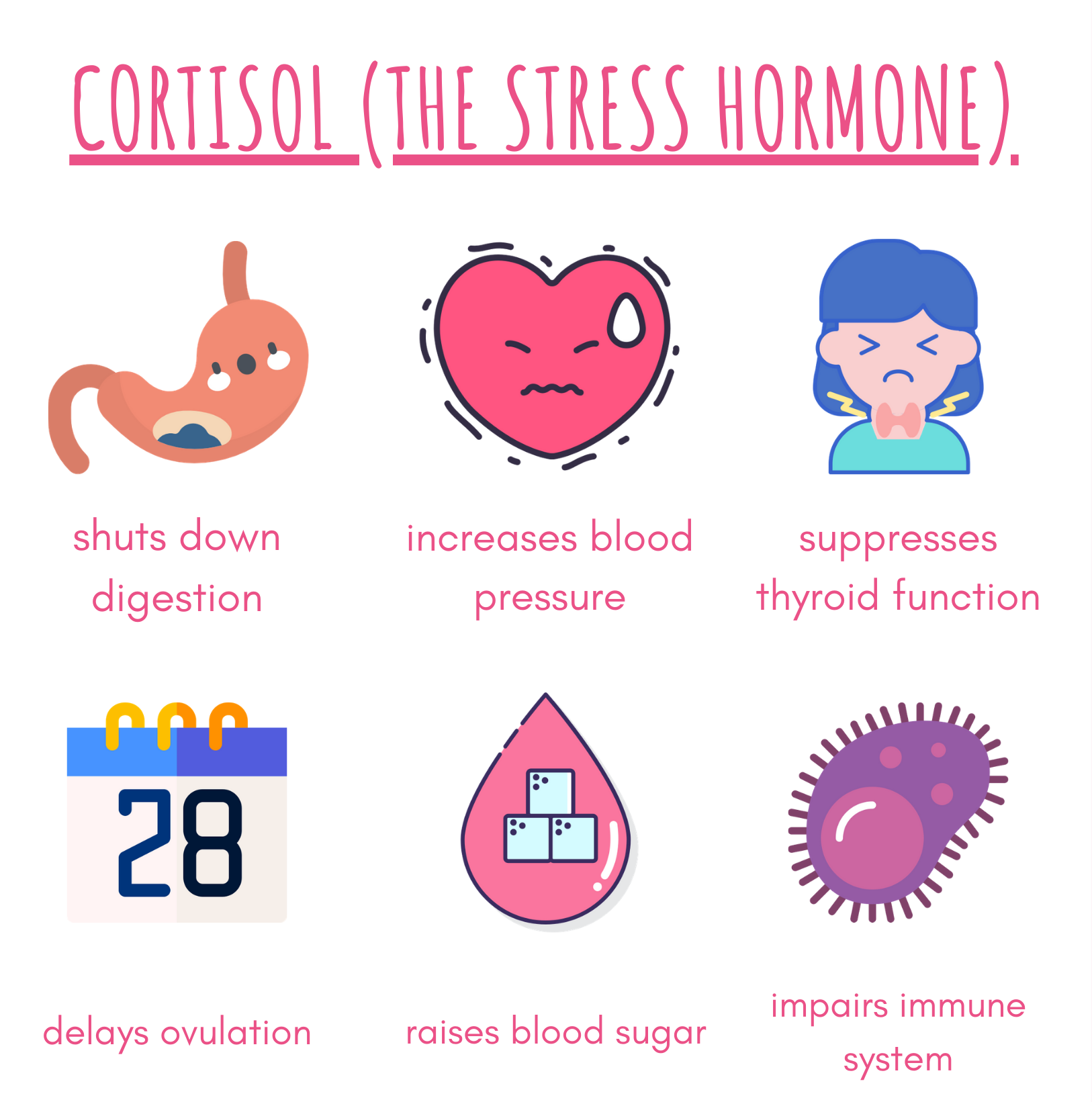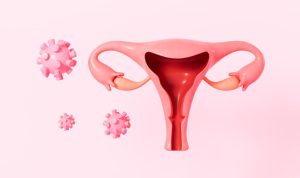Stress is arguably the most common complaint among women. We all feel it—sometimes more than we’d like, and it’s affecting our bodies in ways we don’t even realize.
Stress can make our bodies go haywire from severe anxiety to mood swings to menstrual cycle imbalances.
Read on to get to know why stress is so harmful and what you can do to protect yourself against its effects.

What is Hormonal Balance and Why is it Important?
If you’ve ever felt tired and moody, it’s likely these symptoms were caused by a hormonal imbalance. But what exactly is hormonal balance, and why is it so important?
Hormonal balance refers to the levels of different hormones in your body. All hormones are involved in various biological processes that keep us balanced and working properly. When these hormones are out of balance, disruptions to physiological and mental functions can occur.
How Does Stress Impact Hormonal Balance in Women?
For women especially, understanding the impact of stress on hormone levels is important because it can have major implications on their overall health and well-being. Stress hormones such as cortisol directly affect other hormones in your body, including those responsible for reproduction, mood stability, and metabolism.
Too much stress can lead to increased cortisol levels that can throw off chemical balances resulting in severe physical and psychological symptoms. This hormone disrupts the delicate balance of other hormones, including estrogen and progesterone, which can cause a host of issues like mood swings, weight gain, and menstrual irregularities.
When under stress, your body is also more likely to produce insulin—a hormone that regulates sugar levels. An increase in this hormone can lead to excessive hair growth in women and further disrupt the body’s balance of hormones.
Finally, cortisol affects levels of serotonin—the happiness hormone—which can lead to depression and fatigue. All these combined effects can significantly impede your ability to function actively. So, it’s critical to manage your stress levels if you want to keep your hormonal balance in check. Here is a depiction of how high cortisol levels can impact your health:

To maintain healthy hormone levels, it’s vital to practice stress-management strategies such as meditation or yoga regularly. Taking care of yourself is the first step towards restoring balance in your system!
Signs and Symptoms of an Imbalance
It’s important to watch out for the signs and symptoms of an imbalance in your hormones, especially if you’re prone to high levels of stress.
- Insomnia
Insomnia can be caused by fluctuations in your cortisol levels – the hormone involved in managing stress. Cortisol is typically higher during times of stress, and this can affect your sleep cycles, making it harder for you to fall asleep and stay asleep.
- Mood Swings
Do you feel like your emotions are all over the place? If so, it could be because of an imbalance in your estrogen and/or progesterone levels. Too much estrogen has been linked with increased irritability and mood swings, while decreased levels of progesterone can lead to depression and anxiety.
- Acne & Hair Loss
Stress can cause an increase in testosterone, which can lead to an increase in the sebum production and acne breakouts. Additionally, too much testosterone or adrenal hormones produced during stress can lead to excessive hair loss or thinning hair.
As you can see, stress can directly affect the balance of your hormones, leading to many physical and mental side effects. If you notice that any of these issues have appeared suddenly or have worsened over time, you may want to consider talking with a doctor or endocrinologist about testing for hormonal imbalances or trying to identify any other underlying conditions.
The Role of Lifestyle in Balancing Your Hormones
Stress can have a significant impact on hormone levels in women, but there are some components of lifestyle that can help counteract the negative effects.
Here are some key strategies to keep in mind:
- Exercise
Regular exercise is one of the most important things you can do for your overall health and well-being, especially when it comes to keeping hormones in check. Research has found that engaging in physical activity can help your body regulate hormones such as serotonin, dopamine, and cortisol.
- Get Enough Sleep
One of the most influential lifestyle habits you should focus on is getting enough quality sleep. Not only does proper sleep help you maintain balance in your cortisol levels (the primary stress hormone), but it also increases your serotonin levels (the “happy” hormone). Aim for at least 7 hours of uninterrupted sleep every night to get the full benefits.
- Eating healthy foods
Choosing healthy, well-rounded meals and snacks is another great way to combat stress-related imbalance caused by hormones. Eating a balanced diet that contains whole grains, lean proteins, healthy fats, nuts and seeds, fruits, and vegetables can all help promote better hormone balance — plus, it provides all the essential vitamins and minerals that will keep your body functioning optimally.
In addition to this, for preventing hormone imbalances due to stress, here are some more strategies:
- Practice stress management techniques: Incorporate relaxation techniques like meditation, deep breathing, and yoga to reduce stress and prevent cortisol spikes.
- Avoid stimulants: Limit or avoid caffeine, alcohol, and tobacco, as these can cause stress and disrupt your hormonal balance.
- Maintain a healthy weight: Being overweight or underweight can disrupt hormonal balance. Aim for a healthy weight through a balanced diet and regular exercise.
Incorporating these simple lifestyle habits into your daily routine can go a long way towards helping to maintain a good hormonal balance – both in stressful situations and during times of relative calm.
All in all, stress plays a huge role in hormonal balance in women. It can cause major imbalances and interfere with everyday functioning, so it is important to take steps to keep stress in check. Adopting healthy habits such as regular exercise, getting enough sleep, and eating a balanced diet can help to reduce stress.
Additionally, taking out time for activities you enjoy can help to boost your mood, reduce anxiety, and promote hormonal balance.
Don’t forget that taking care of yourself is the key to maintaining hormonal balance, so it’s important to recognize when you are feeling overwhelmed and take action for reducing your stress levels.
Embrace womanhood without any fears!







